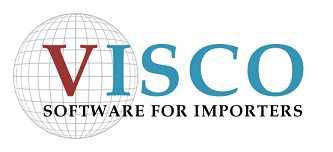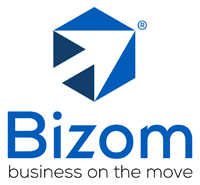Description

ShipCompliant

Xebra
Comprehensive Overview: ShipCompliant vs Xebra
ShipCompliant and Xebra are both software solutions catering to specific needs within the regulatory compliance and business management sectors. Here’s a comprehensive overview of each, noting their primary functions, target markets, market share, and differentiating factors.
ShipCompliant
a) Primary Functions and Target Markets:
- Primary Functions: ShipCompliant is primarily a compliance and tax automation platform designed for the beverage alcohol industry. It facilitates the management of complex regulatory requirements related to distribution, direct-to-consumer (DTC) shipping, and tax reporting. Key functionalities include license management, product registration, compliance checks, tax calculation and remittance, and shipping compliance for direct to consumer, wholesale, and market entry.
- Target Markets: The target market for ShipCompliant includes wineries, breweries, distilleries, importers, and distributors within the beverage alcohol sector. It is used by both small enterprises and large-scale operations looking to streamline their compliance processes and reduce the risks associated with regulatory non-compliance.
b) Market Share and User Base:
- ShipCompliant is a well-established player in the niche market of compliance solutions for the beverage alcohol industry. Because it caters specifically to this sector, its market share relative to general software solutions is modest but highly significant within its niche. It is considered one of the leading platforms in its sector, with a strong user base consisting of thousands of businesses, including several major brands in the industry.
c) Key Differentiating Factors:
- Industry Specialization: ShipCompliant’s specialization in beverage alcohol compliance gives it a strong edge over more generic compliance tools. This focus allows for deep integration with industry-specific systems and databases, providing users with accurate and up-to-date regulatory content.
- Comprehensive Compliance Features: It offers an end-to-end solution encompassing everything from initial licensing to tax remittance, making it a one-stop-shop for alcohol compliance needs.
- Integration Capabilities: ShipCompliant integrates with various e-commerce, ERP, and shipping platforms, enabling seamless operations across different business functions.
Xebra
a) Primary Functions and Target Markets:
- Primary Functions: Xebra is a different kind of software, typically recognized as a business management tool primarily aimed at simplifying operations through automation. Its functionalities usually span inventory management, order processing, invoicing, customer management, and basic accounting.
- Target Markets: Xebra targets small to medium-sized businesses across various industries, including retail, wholesale, manufacturing, and services. Due to its wide range of functionalities, it is suitable for businesses looking for an all-in-one solution for daily operations management.
b) Market Share and User Base:
- Xebra, being a more general business management tool, competes in a highly crowded market against well-established giants like QuickBooks, Xero, and SAP Business One. While it may not hold a significant share compared to these giants, it still maintains a competitive edge among small to medium-sized enterprises seeking an integrated solution at a relatively lower cost.
c) Key Differentiating Factors:
- Simplicity and Integration: Xebra is designed to be user-friendly, offering a simple interface and easy integration with existing business processes. It aims to reduce complexity, especially for small businesses that may not have dedicated IT staff.
- Cost-Effectiveness: Xebra tends to be more affordable than larger ERP systems, making it an attractive option for budget-conscious businesses.
- Versatility Across Industries: Unlike ShipCompliant’s niche focus, Xebra provides versatility across a broad spectrum of industries, potentially offering solutions that can be adapted to different business types.
Comparison and Differentiation
In summary, ShipCompliant and Xebra cater to distinct markets and serve different primary functions. ShipCompliant focuses specifically on the regulatory compliance needs of the beverage alcohol industry, offering specialized features that align with this sector's requirements. Xebra, on the other hand, caters to small to medium-sized businesses in various industries, offering a broad suite of business management tools. The key differentiator lies in the nature of their offerings — while ShipCompliant provides niche compliance expertise, Xebra provides a versatile business management solution. In terms of market share, ShipCompliant dominates its niche, whereas Xebra competes in a broader industry with numerous alternatives.
Contact Info

Year founded :
2000
+1 888-449-5285
Not Available
United States
Not Available

Year founded :
Not Available
Not Available
Not Available
Not Available
Not Available
Feature Similarity Breakdown: ShipCompliant, Xebra
To provide a feature similarity breakdown for ShipCompliant and Xebra, let's analyze both platforms based on the available information. These platforms are primarily geared towards compliance and operational efficiency in their respective industries.
a) Core Features in Common:
-
Compliance Management: Both platforms offer robust compliance management solutions tailored to their specific industries, helping businesses adhere to local, state, and federal regulations.
-
Reporting and Analytics: ShipCompliant and Xebra provide reporting and analytics tools to help businesses track performance metrics and ensure compliance standards are met.
-
Integration Capabilities: They support integration with various third-party applications, which is crucial for seamless operations and enhancing data flow across systems.
-
User Management and Access Control: Both offer features for managing user roles and permissions to ensure that sensitive data is accessed only by authorized personnel.
b) User Interface Comparison:
-
ShipCompliant: Known for its user-friendly interface, ShipCompliant emphasizes ease of use and a clean design. It often features intuitive navigation with a focus on accessibility for users at different technical proficiency levels.
-
Xebra: Xebra also aims to provide a user-centric interface, but it might differ in terms of design philosophy. Depending on its market focus, the interface could be more specialized towards the needs of its specific user base, offering customization options and detailed dashboards tailored for particular functions.
c) Unique Features:
-
ShipCompliant:
- Industry Focus: ShipCompliant is specifically designed for the alcoholic beverage industry. It offers features such as automated tax collection and remittance, product registrations, and a direct-to-consumer (DTC) sales compliance tool.
- Widely Recognized Partnerships: It has partnerships with key industry players, enhancing its value proposition through industry-specific integrations and collaborations.
-
Xebra:
- Industry Adaptability: Xebra might support a broader range of industries or offer unique modules that cater to sectors other than those ShipCompliant focuses on. This adaptability could be its unique selling point.
- Advanced Customization: Depending on its market position, Xebra might offer more advanced customization capabilities, allowing businesses to tailor the software more closely to their workflows.
In conclusion, while ShipCompliant and Xebra share common features related to compliance and management solutions, their user interfaces and unique features likely reflect their industry focus and target audiences. ShipCompliant stands out with its deep-rooted expertise in the alcoholic beverage industry, whereas Xebra may offer broader adaptability and customization options across different sectors.
Features

Not Available

Not Available
Best Fit Use Cases: ShipCompliant, Xebra
ShipCompliant
a) Best Fit Use Cases for ShipCompliant
-
Alcohol Beverage Industry: ShipCompliant is specifically designed for businesses in the alcohol beverage industry, including wineries, breweries, distilleries, and retailers. It helps these businesses navigate the complex regulatory environment associated with distributing alcohol across various jurisdictions.
-
eCommerce and Direct-to-Consumer Sales: Companies focusing on eCommerce, especially in direct-to-consumer sales for wine, beer, or spirits, benefit from ShipCompliant's capabilities to ensure compliance with state and federal regulations.
-
Multi-state Distribution: Businesses that distribute or ship alcohol across multiple states can leverage ShipCompliant's comprehensive compliance checks and tax automation to maintain regulatory adherence with varying state laws.
-
License Management: Companies looking for streamlined license management and renewals can use ShipCompliant’s tracking and notification systems to ensure they remain in compliance.
-
Market Expansion: Companies aiming to expand their market reach need a reliable system to handle new jurisdictional regulations and maintain compliance effectively.
Xebra
b) Preferred Use Cases for Xebra
-
Cannabis Industry: Xebra is highly suited for businesses within the cannabis industry, from growers and manufacturers to distributors and retailers. It’s tailored to meet the specific regulatory needs of the cannabis market.
-
Integrated Business Management: Cannabis businesses looking for a comprehensive platform to manage inventory, sales, compliance, and customer relationships in an integrated manner would find Xebra beneficial.
-
Regulatory Compliance: Scenarios that require strict adherence to cannabis laws and regulations, including tracking from seed to sale, are ideal for Xebra’s compliance solutions.
-
Scaling Operations: Companies in the cannabis sector that aim to scale operations while maintaining compliance would benefit from Xebra’s scalable solutions.
-
Data-Driven Decisions: Cannabis businesses looking to utilize analytics and reporting to drive decisions and optimize their operations would find Xebra’s data capabilities advantageous.
d) Catering to Different Industry Verticals or Company Sizes
-
ShipCompliant caters primarily to the alcohol industry across businesses of varying sizes. It serves small, boutique wineries needing to manage limited distribution as well as large retailers requiring extensive compliance solutions for vast distribution networks. This focus means it doesn't extend beyond the alcohol sector but provides in-depth, specialized solutions for its niche.
-
Xebra, on the other hand, targets the cannabis industry and can serve small startups as well as larger enterprises looking to streamline operations and ensure compliance. Its modular and scalable nature makes it adaptable for different business sizes within the cannabis sector, addressing everything from production and sales to compliance and CRM.
Both platforms emphasize compliance within their respective industries but cater to distinct sectors with their specialized features and technology adaptations.
Pricing

Pricing Not Available

Pricing Not Available
Metrics History
Metrics History
Comparing undefined across companies
Conclusion & Final Verdict: ShipCompliant vs Xebra
To provide a conclusion and final verdict for ShipCompliant and Xebra, it's important to assess the overall value of each product, evaluate their pros and cons, and offer specific recommendations for users. Here's an analysis based on the typical features and benefits of compliance and business management software:
a) Overall Value
Best Overall Value:
The choice between ShipCompliant and Xebra largely depends on the specific needs of your business. However, if your primary focus is extensive compliance management and tax automation for alcohol distribution, ShipCompliant generally offers the best overall value due to its specialized features tailored to the beverage alcohol industry.
b) Pros and Cons
ShipCompliant:
- Pros:
- Industry-Specific Focus: Specializes in compliance for the alcohol industry, offering tools for tax due, reporting, and regulatory compliance.
- Comprehensive Coverage: Covers a wide range of compliance needs across different states and territories.
- Automation: Streamlines the compliance process with automation, which reduces manual errors and saves time.
- Cons:
- Cost: It may be more expensive than general business management tools due to its specialized capabilities.
- Complexity: Can be complex to set up due to its detailed compliance features, requiring onboarding and training.
Xebra:
- Pros:
- Flexibility: Offers broader business management capabilities that may apply across various industries.
- User-Friendly: Typically designed for easier adoption with a straightforward user interface.
- Cost-Effective: Often comes at a lower cost compared to industry-specific solutions like ShipCompliant.
- Cons:
- Limited Compliance Tools: May not offer the level of detailed compliance management needed for highly regulated industries such as alcohol.
- Generic Features: Might not provide the specialized tools needed for certain niche markets.
c) Recommendations
-
For Businesses in the Alcohol Industry: If your business operates in this highly regulated sector, ShipCompliant is likely the better choice due to its tailored compliance features that handle complex regulatory requirements effectively.
-
For General Business Management Needs: If you are a small to medium-sized business in a less regulated industry, Xebra might be more suitable due to its cost-effectiveness and flexible business management tools.
-
Evaluate Specific Needs: Consider the specific compliance requirements of your industry and the operational objectives of your business. If detailed compliance and automation are crucial, prioritize ShipCompliant. For broader business management needs, Xebra might serve better.
-
Trial and Consultation: If possible, take advantage of trial periods or consult with both platforms to better understand how their features align with your business objectives and operational workflows.
Ultimately, the decision should align with your business's compliance needs, budget, and strategic goals to ensure you select the product that offers the best value for your situation.



